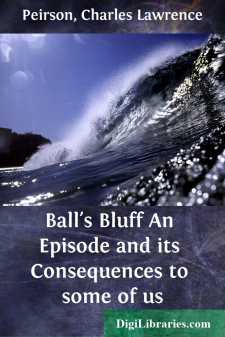Categories
- Antiques & Collectibles 13
- Architecture 36
- Art 48
- Bibles 22
- Biography & Autobiography 815
- Body, Mind & Spirit 144
- Business & Economics 28
- Children's Books 18
- Children's Fiction 14
- Computers 4
- Cooking 94
- Crafts & Hobbies 4
- Drama 346
- Education 58
- Family & Relationships 59
- Fiction 11829
- Games 19
- Gardening 17
- Health & Fitness 34
- History 1378
- House & Home 1
- Humor 147
- Juvenile Fiction 1873
- Juvenile Nonfiction 202
- Language Arts & Disciplines 89
- Law 16
- Literary Collections 686
- Literary Criticism 179
- Mathematics 13
- Medical 41
- Music 40
- Nature 179
- Non-Classifiable 1768
- Performing Arts 7
- Periodicals 1453
- Philosophy 65
- Photography 2
- Poetry 896
- Political Science 203
- Psychology 44
- Reference 154
- Religion 515
- Science 126
- Self-Help 85
- Social Science 82
- Sports & Recreation 34
- Study Aids 3
- Technology & Engineering 59
- Transportation 23
- Travel 463
- True Crime 29
Our website is made possible by displaying online advertisements to our visitors.
Please consider supporting us by disabling your ad blocker.
Ball's Bluff An Episode and its Consequences to some of us
Description:
Excerpt
This subject, like many of the periods of the Civil War, has been often described, and is familiar to the passing generation, but has, I believe, never before been placed upon your records, nor by an eye witness. Therefore, I venture to present it here.
The Twentieth Massachusetts Regiment of Volunteer Infantry, in which I had the honor to be a First Lieutenant and Adjutant, left Boston in the Autumn of 1861, for active service with the army. It was commanded by William Raymond Lee, as Colonel,—a West Point graduate. Paul J. Revere was the Major. It had been, before the date of the Ball's Bluff engagement, but a few weeks in the service, and was stationed first at Washington, where I remember calling with Colonel Lee, who knew them, upon General Scott, then commanding the Armies of the United States, and upon General McClellan, then Commander of the Army of the Potomac.
The men of the Regiment, like all of the troops in the East at that time, were untrained by battle, never having heard the sound of a hostile bullet, and were of no more value as soldiers than were the Militia Regiments. Soldiers are not soldiers until they have been long enough together to have acquaintance with and respect for their officers, and have learned obedience with a belief in discipline, with a willingness to abide by it. The earlier Battle of Bull Run, which became a rout for want of discipline, proved nothing and taught nothing except the after-thought of the necessity of discipline.
Up to this time (1861), the important arms of Cavalry and Artillery had been almost entirely neglected, most of the Cavalry not yet being armed or equipped.
General McClellan, who was in command when we joined the Army of the Potomac, was a thoroughly educated soldier. Soon after his graduation from West Point, he was employed in the construction of the first Pacific Railway. Later he was selected as one of a Commission to study the Art of War in Europe. For a time he was with the Allied Armies in the Crimean War, with every possibility of instructing himself in siege operations, construction of military bridges and use of pontoons, and the accepted order of battle for the different arms of the service. Always occupied with matters of large importance, and with all these military experiences, he became the best equipped man for the command of the Union Army. General McClellan was the most popular Commander that the Army ever had. The men thoroughly believed in him. Certainly the country owed much to him for the thorough organization of the Army, which enabled less qualified Commanders, (before the time of Meade and Grant), to accomplish something with it.
The Twentieth Massachusetts Regiment was attached to General Stone's Corps of Observation, and was encamped near Edward's Ferry on the Potomac River, some three miles from Ball's Bluff. General Stone was an accomplished soldier and we all respected him as such.
We were part of the Brigade of General F. W. Lander. I had known him well in Salem, where our families resided. He had had a most adventurous life as an explorer, having once crossed the continent from San Francisco to the East, alone, his companion having died on the journey. His courage was unquestioned, and he had military ability....


